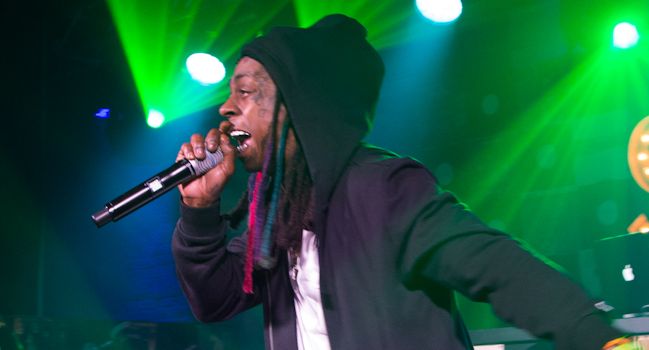
“This the sh*t they didn’t want me on.”
No, Mr. Carter. This is exactly what we were looking for.
Lil Wayne was likely referring to the powers that be holding his much-anticipated Tha Carter V hostage on a hard drive, but the first line of his Free Weezy Album mixtape/album/project is certainly not speaking for the fans of the early Carter tapes.
Free Weezy Album won’t make us forget the mid-2000s heyday of Wayne, but it is a sign of life from an artist who’s taken a bigger fall from grace than anyone could have imagined since 2008. Wayne has spent the last seven-plus years trying to get by with stale beats and lyrics cornier than a late New Jersey summer.
For fellow rappers, getting a Lil Wayne verse used to symbolize a new step in stardom. Then, he decided the best career move was to hop on flavorless beats that exemplify everything wrong with rap’s “bling” era to drop embarrassing verses alongside whichever rapper was trending at the time.
But, perhaps invigorated by his long, drawn-out dispute with Cash Money Records, Wayne seems to have new life in him on this impromptu project. For the first time since Tha Carter III, Wayne has put out a body of work that has inspired beats, as well as meaningful content delivered by lyrics that aren’t meant for a fourth grade poem.
Right off the bat, Wayne makes it clear that this time around is different. The intro track “Glory” features Wayne spitting out braggadocios bars that will make fans of the pre-Tunechi era nostalgic. Wayne stays in his late; his vocabulary is somewhat limited, but his poignant delivery and clever, usually amusing wordplay hold the listener’s attention (“black your eye like Will.I.Am, you Willy Wonka / That’s me in the Lam, I’m disappearin’ like Jimmy Hoffa.”)
The following track addresses the elephant in the room quickly. “He’s Dead,” sampling “I See Ghost,” lets Tunechi’s listeners know that the dragging dispute (to put it kindly) with Cash Money Records is nearing its end. Wayne admits his decline and hints at a return to glory, albeit a changed man (“die, come back to life, shaved and corporate.”)
He also touches on other close-to-the-heart topics that show a transparent, open Wayne we have not seen in years. Whether it’s the irony of driving home a new Bentley past prison yards in “Post Bail Ballin'” to re-hashing gang violence in “Pull Up” (which features his best flow in years), Wayne has not been this personal and forthright since a Republican was president.
Wayne also shows that he’s capable of making a club hit with “Feel Good,” which features a fantastic use of the original James Brown sample surrounded by a rolling bass and hard-hitting snare.
FWA is not without its fair share of faults; Wayne’s rust is still apparent in a handful of downright painful tracks. “I’m That N*gga” is repetitive to the point of annoyance. He’s also far too liberal in his use of autotune at points, pouring it all over “Pick Up Your Heart” and “My Heart Races,” two tracks that had touching lyrics drowned out.
Wayne has some kinks to continue to work out, but for an artist whose name was becoming more of a punchline with each release, FWA is a huge step forward. Gone are the days of kindergarten lyrics and “for the heck of it” feature artists. Wayne has realized that, no matter how much drama ensues between labels and rival artists, there is only one path back to the top: making great music.
Weezy may have been freed after all.






